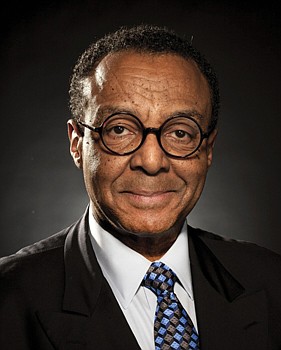Problematic political rhetoric, by Clarence Page
12/21/2023, 6 p.m.
As someone who has appreciated the power of protest and activism on achieving progress in the U.S. and the world, it’s hard for me to watch the current high emotions over the Middle East devolve into arguments about the meanings of slogans.
Not only are those at loggerheads over Israel and Hamas taking the temperature to extreme levels, they won’t even agree on how to argue. Is, for example, “from the river to the sea” fair comment?
For those advocating for the Palestinian point of view, using phrases that the other side views as hateful is self-defeating and, frankly, hateful.
That’s why I appreciate the bold new effort by Cenk Uygur (“pronounced Jenk, like short for Jenkins” and You-ger) — host of the popular left-wing YouTube political commentary show, “The Young Turks” — to eliminate that oft-voiced and problematic slogan: “From the river to the sea, Palestine will be free.”
“Can everyone please stop the dumb ‘from the river to the sea’ chant?” Uygur posted on X, formerly Twitter. “It is incredibly hurtful to our Jewish brothers and sisters. It’s also incredibly counterproductive to protecting Palestinians. Do not chant something that the majority thinks is a call for genocide. Not complicated.”
I appreciate his call for clarity in sloganeering. I felt the same way when “Black Lives Matter” first appeared on the national scene during the great racial reckoning that followed George Floyd’s death. Passionate but leaderless movements often have too little control over their messaging. We all witnessed that when the political right took BLM’s name and attached their own cynical meanings to it.
The slogan is controversial enough to have led to the censure last month of Michigan Democratic Rep. Rashida Tlaib, the only Palestinian American member of Congress.
Rep. Tlaib, like other Palestinians I know, claims a very different understanding of the phrase going back to the time when the territory historically called Palestine stretched between the Jordan River and the Mediterranean Sea under British rule from 1920 to 1948.
When Israel was established, the Palestinian territory was divided. Now the West Bank lies on the Jordan River, the Gaza Strip is on the Mediterranean coast and Israel lies between them.
As a result, the phrase “from the river to the sea” sounds like a call for the destruction of Israel, the country that now occupies that location.
Which is why antisemitism watchdog groups such as the Anti-Defamation League and the American Jewish Committee understand the phrase to mean calling for the removal of Jews from Israel, while others — particularly on the Palestinian side — hear the slogan as an expression of hope for Palestinian unity and autonomy.
Mr. Uygur’s critics are pointing out that, when it comes to problematic political rhetoric, he might need to get his own house in order.
He wrote, “We can all see the genocide in Gaza with our own eyes. Yet, almost every one of the politicians in Washington is pretending that it isn’t happening. And that we should send $14 billion to help Israel commit obvious war crimes because they are being oppressed by the Palestinians.”
In another post, Uygur accused the U.S. government of hypocrisy for reprimanding college administrators who have allowed anti-Israel rhetoric on campuses while supporting what he called Israel’s so-called genocide in Gaza.
Uygur, like numerous others on the left, uses words such as “apartheid” and “genocide” to describe Israel’s treatment of Palestinians. As a journalist who reported in apartheid South Africa on the Soweto uprising in the 1970s, I learned firsthand how real apartheid worked for — or against — those of us who deemed the underclass by that regime.
Gaza, you’re no Soweto, although the difference surely isn’t meaningful to those whose neighborhoods are being bombed.
The writer is a columnist for the Chicago Tribune.






